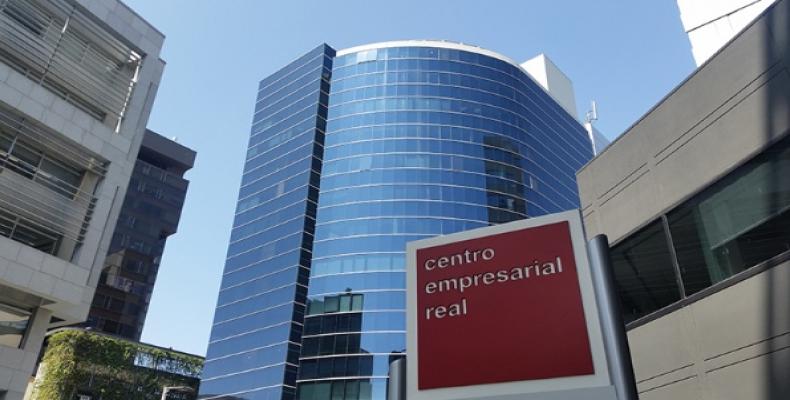Lima, October 28 (RHC)-- Six of the largest Peruvian companies have their investments highly interwoven with international capital. A new book, “Elite Power and Political Capture,” by Francisco Durand and John Crabtree reveals who the major actors in the Peruvian economy are, how much they control, and what political influence they wield.
The publication narrates how 30 years ago, 12 families controlled the Peruvian economy but only five of those have endured. They have been able to survive by integrating with transnational corporations. One new family has emerged which is also integrated with international capital.
And six other families have emerged but are from outside of the capital. All these companies add up to a dozen new multi-millionaire institutions whose economic power largely dominates all other actors.
For Francisco Durand, one cause for the change was the neo-liberal opening of the economy starting in 1990. The companies that disappeared were either bought or absorbed by others. Four of those companies – Romero, Benavides, Ferreyros, and Brescia – reorganized themselves, investing internationally and “controlling national banking in association with foreign capital.”
The Romero group owns BCP Bank; Benavides is in mining with the Yanacocha and Buenaventura subsidiaries; Ferreyros is in sales of heavy machinery; and Brecia is in fishing and banking with BBVA but remains otherwise greatly diversified.
Graña-Montero is another of the families. They are in the construction business but also have a close-knit relationship with the Miro-Quesada family, which has greatly monopolized media. The sixth family from Lima, the capital, is Rodriguez-Pastor, which are relatively new players. They own Interbank but are also greatly diversified.
Durand explains that while in the past, all 12 families controlling the economy were from Lima, now there are new families from the provinces of the country that compete for economic power with the remaining ones from the capital. Such is the case with the Rodriguez-Banda family that owns Group Gloria, a growing monopoly in dairy and other food products as well as cement and paper.
Another new player is the Añaño family, which comes from the city of Ayacucho in the Andes of Peru and is competing with the Coca-Cola Company in distant locations like India. Their leading product is Big Cola.
In the education sector, there is the family of former presidential candidate Cesar Acuña, who owns a chain of for-profit universities under the Cesar Vallejo brand. Then there is the Hurancana family in the coffee business, with their brand Altomayo. Dyer & Coriat own the Camposol brand in agriculture, while the Flores family has a commanding stake in clothing with Topi-top.
Durand concludes that globalization has eliminated some actors but has also opened the door for new concentrations of economic power. The 12 families have a total of 501 companies out of which 134 are located outside of Peru.
Foreign investment is something that that did not take place before. Among the six groups from Lima, there is a high level of internationalization. They operate in the Lima Stock Exchange and have relationships with foreign investors.
“For example, BCP in reality is no longer a Peruvian bank. Almost 70 percent of its capital is controlled by foreign interests,” stated Durand. Fifty-seven percent of Graña-Montero, 38 percent of the food company of the Romero’s, and 40 percent of the capital of Rodriguez-Pastor are in the hands of foreign investors, according to Durand’s research.
Durand also reveals that the six families that are from Lima have more control of the financing system, better political connections, and better links to media. “They have rapid access to the highest levels of decision making, starting with the president, and following with all the ministers and other institutions of the state. And once you have access, you can exercise influence.”
For Durand, the main path to exercising such influence is the financing of electoral campaigns. Companies in Peru can finance campaigns with large amounts of money, they can fund several political parties, and in addition to money, they can provide other resources such as real estate and transportation equipment to political candidates.
Report Shows 12 Companies Control the Entire Peruvian Economy

Related Articles
Commentaries
MAKE A COMMENT
All fields requiredMore Views
- Cuban Martinez Saves 23rd Game in Japanese Baseball
- Mixed Doubles Will Be the Main Attraction in the Caribbean Table Tennis Tournament
- Cuba calls for the urgent mobilization of the international community to stop the Zionist military escalation and a direct attack by the United States against Iran
- Cuba condemns U.S. aggression against Iran's nuclear facilities
- Expocaribe 2025 for the economic integration of the Greater Caribbean

